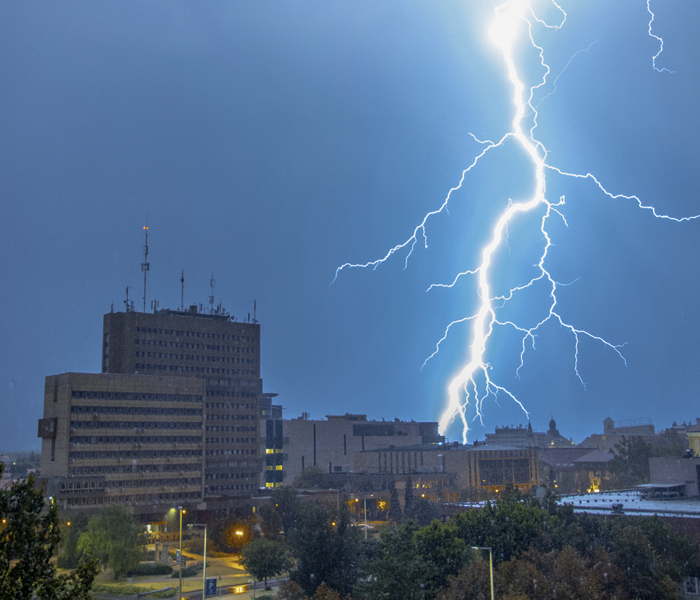Coping with Power Outages during a Storm
9/23/2023 (Permalink)
Power outages are a common occurrence during storms, and they can disrupt our daily lives and pose various challenges. Being prepared and knowing how to cope with power outages is essential for staying safe, comfortable, and connected during these challenging times. In this blog post, we will explore some practical tips and strategies for coping with power outages during storms.
Create an Emergency Kit
Having an emergency kit prepared in advance is crucial for dealing with power outages. Include essential items such as flashlights, extra batteries, a battery-powered radio, a first aid kit, non-perishable food items, bottled water, a manual can opener, and a backup power source, such as a generator or a battery pack for charging essential devices.
Stay informed by keeping a list of important phone numbers, including the local power company, emergency services, and any local updates provided by authorities. Consider downloading relevant apps or subscribing to emergency alert services to receive real-time information about the outage and any safety measures.
Minimize Power Usage
During a power outage, conserve energy by minimizing power usage. Turn off all non-essential lights, appliances, and electronics to reduce the strain on the electrical system when power is restored. Unplug sensitive devices to protect them from power surges when the power comes back on.
Keep the refrigerator and freezer doors closed as much as possible to maintain the cold temperature and preserve perishable food. If the outage is prolonged, consider moving essential items to a cooler with ice. Additionally, ensure you have an adequate supply of any necessary medications and keep them in a cool, dry place.
Stay Safe
Stay safe during a power outage by using caution. Keep candles and open flames away from flammable materials and never leave them unattended. If using a generator, follow the manufacturer's instructions and place it outside to prevent carbon monoxide poisoning. Use flashlights instead of candles whenever possible to reduce the risk of fire.
During a power outage, it's important to stay hydrated and comfortable, especially if the outage occurs during extreme weather. Have bottled water stored and use battery-operated fans or open windows for ventilation. If necessary, seek alternative shelter with friends, family, or emergency shelters to ensure your safety and well-being.
Maintain Communication
During a power outage, it's crucial to maintain communication with loved ones and authorities. Keep your mobile devices charged and use them sparingly to conserve battery life. Consider investing in a portable phone charger or a car charger as an additional power source. If cell service is unavailable, use a landline phone if possible.
Reach out to neighbors, friends, or community organizations to offer or seek assistance during a power outage. Check on vulnerable individuals, such as the elderly or those with medical conditions, to ensure their well-being. Sharing resources, expertise, and support can make coping with a power outage more manageable and less stressful.
Remember to be patient during a power outage. Restoration efforts can take time, especially during severe storms or widespread outages. Trust that the utility companies are working diligently to restore power as quickly and safely as possible. Coping with power outages during storms can be challenging, but with preparation, practical strategies, and a calm approach, you can navigate through these situations. By following these tips, you can minimize the impact of power outages, ensure your safety, and make the experience more manageable for yourself and your loved ones.




 24/7 Emergency Service
24/7 Emergency Service
